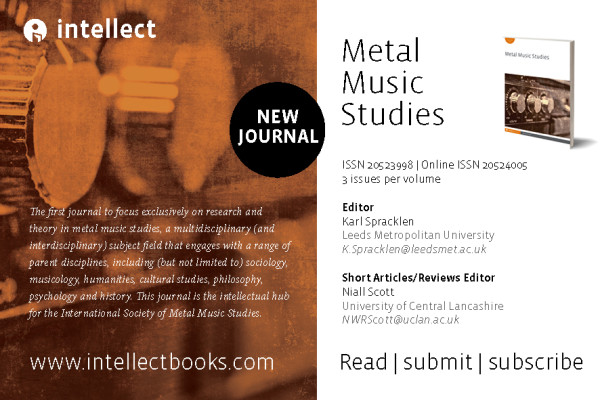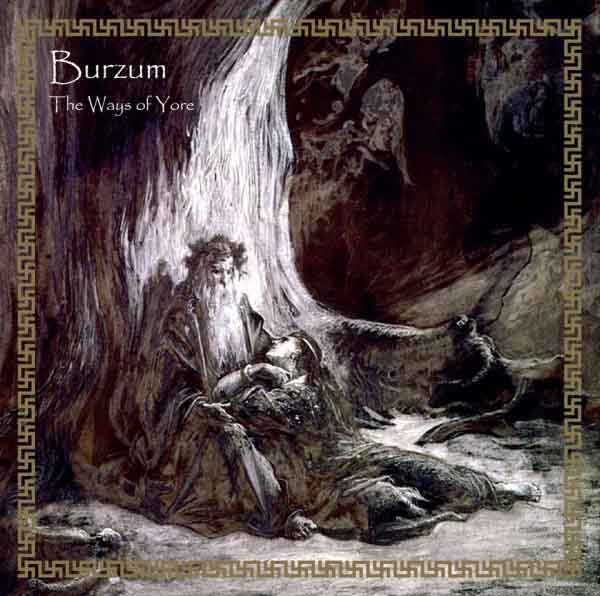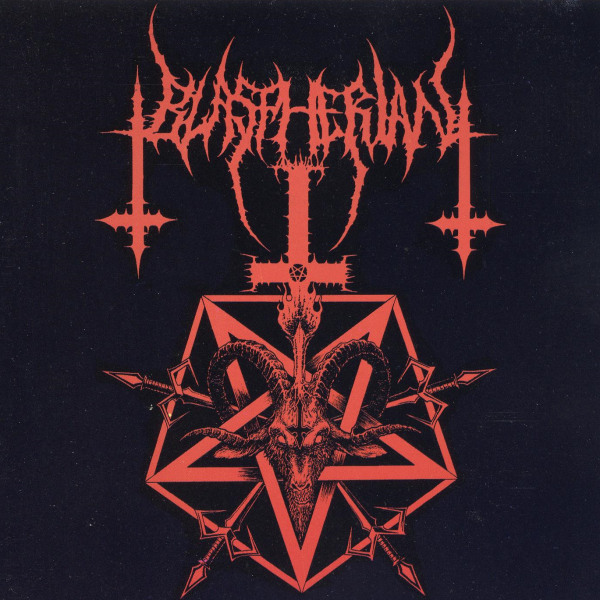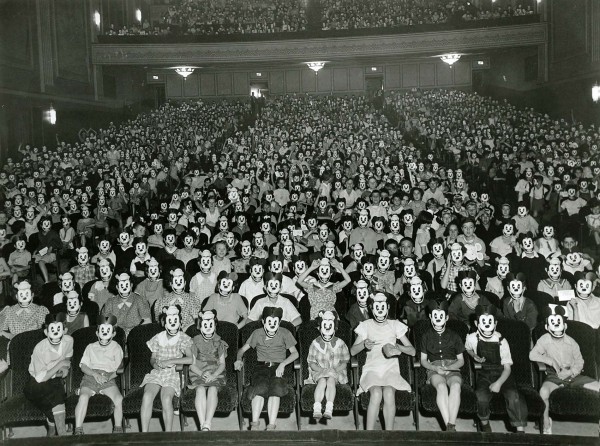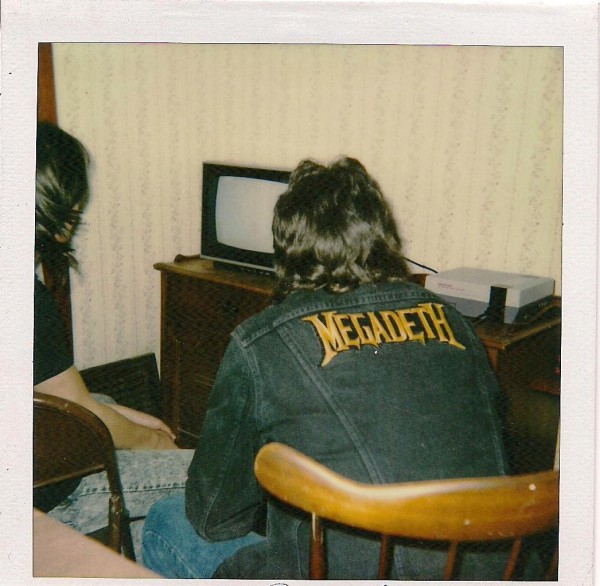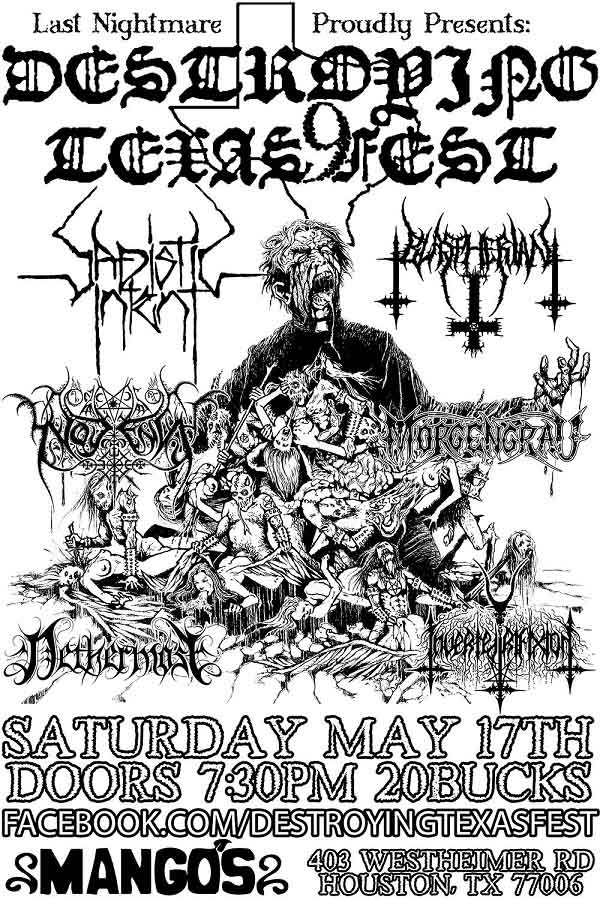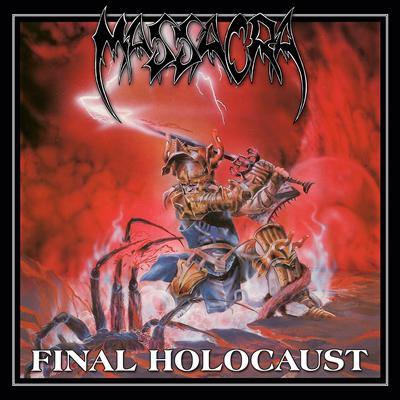
Jeremy Wallach made a name for himself by studying metal before it was cool, and he has expanded upon it by taking his studies worldwide. As co-editor of Metal Rules the Globe: Heavy Metal Music around the World, he explored the impact of metal on different cultures and the impact of those cultures on metal around the world. In addition, he has written numerous articles on the study of metal from many other perspectives.
As a professor in the Department of Popular Culture at Bowling Green State University, Wallach investigates many aspects of popular music, which led to his own book Modern Noise, Fluid Genres: Popular Music in Indonesia, 1997-2001. Those who have followed the development of metal academia may remember him from his numerous articles, presentations at metal conferences, and strong ties with others in the community. We were lucky to get a few minutes with him to ask some of the pointed questions that a metalhead might want to know of a metalhead academic…
Were you a metalhead before you became an academic? If so, what drew you to metal at that time?
I’m 43 and grew up outside of Philly. Like almost everybody of my age and background, I spent my teens mostly listening to rock music. My favorite band when I was thirteen was Rush and my favorite song from Moving Pictures was “Witch Hunt,” the heaviest track on the album. From there I branched out into the harder stuff: AC/DC, Priest, Maiden, BÖC, etc. By senior year of high school, I was listening to the likes of Anthrax, Slayer, Cryptic Slaughter, SOD, and Dead Brain Cells. A fairly normal, demented progression, really. As for what drew me to it, I suppose that could end up becoming a very long essay! In a nutshell, I was attracted to the music’s intelligence, complexity, social relevance, and brutality. It was music that for me told the truth about life.
You have a lengthy list of academic publications and credentials. What made you think to combine metal and academia, and research on this specific topic?
By my senior year of college, I was convinced of two things: one, metal was a valuable and compelling cultural form that was completely misunderstood by the adult world, and two, the approaches to music and culture that I had discovered in my ethnomusicology and anthropology classes could be used to explain the importance of metal to outsiders.
Being a part of metal studies has been a learning experience. One thing I’ve learned is that in 2014 metal is more diverse and inclusive than I ever would have thought possible twenty-odd years ago. Metal’s message has more global currency than anyone could have suspected when the genre first coalesced. The consequence of this has been a field of study that has more relevance to the contemporary world than the vast majority of new fields that focus on popular culture phenomena that had their start in the 70s and 80s. One of the most challenging topics in metal studies at this point is social class. Metal’s blue-collar fan base is often difficult to locate in the 21st century flourishing and diversification of the music, especially outside of the UK, New Zealand, and Australia. We should never lose sight of the fact that it was working-class folks, people without much formal education, who set the template for heavy metal’s musical sophistication, aesthetics, and dark vision.
I was attracted to the music’s intelligence, complexity, social relevance, and brutality. It was music that for me told the truth about life.
Some of your research appears to take an “ethnographic” approach, which is a study of culture. Do you consider heavy metal a culture? If so, does it inherit properties from a broader culture, or is it a wholly self-owned entity?
I was trained as a cultural anthropologist and an ethnomusicologist in graduate school. Ethnography is the primary mode of research in these fields as they are currently practiced. “Deep hanging out” is my favorite definition of ethnography, although usually it’s quite a bit more systematic than that. Basically it involves long-term engagement with a finite group of people, gradually learning to see and experience the world the way they do. You have to master local languages and idioms, really be able to listen, and be willing to be changed by what people tell you. It’s difficult and not everyone can do it, as you can’t really maintain any sort of comfort zone. Metal ethnographers spend lots of time at shows, clubs, and recording studios, but also in cars, bars, record stores, and anywhere else metalheads gather. Pierre Hecker’s book on Turkish metal is an excellent example of a book-length ethnographic study of heavy metal.
There is a range of theories regarding how music cultures like metal interface with the “parent cultures” in which they are embedded. It’s more common now to refer to metal collectivities as “scenes” than as “subcultures.” This is mostly because of advances in cultural theory that emphasize how no culture can be a “wholly self-owned entity” of homogeneous values. All cultures have porous boundaries and are composed of contested meanings. Accordingly, metal music scenes encompass contradictory sets of values, from the celebration of virtuosity and freedom of prog to the despair and resignation of doom to the nihilism and misanthropy of black metal (etc.), and within each of these subgenres there are internal tensions as well, as most readers here know. Some of these competing values echo those of dominant culture (male supremacy, individualism), others resist it (anti-religion, anti-war, pro-drunken revelry). Even the values that seem to fit with dominant culture are not passively inherited but instead tend to be actively renegotiated and rearticulated to fit the conditions of the lives of the actual metalheads composing, performing, listening to, and interpreting metal.
That of your work that I could find online seems to emphasize spaces, both real and virtual, in not only the work but the audience. For example, your analysis of a rock club emphasizes spaces by role (shades of Christopher Alexander) and look at social/cultural separation between bands and fans in an insightful way. What are spaces? Can they be psychological or even artistic? Where do you find them in metal?
Metal culture has always been about claiming space. At the beginning of his book Running with the Devil, Robert Walser writes, “Metal energizes the body, transforming space and social relations.” It’s kind of a throwaway line in the first chapter, but like so much of what’s in that book, it hits the nail on the head. Steve Waksman’s research focuses on how metal’s powerful amplification made it the ideal music to fill arenas, while Keith Kahn-Harris’s work brings attention to the other side of the of the phenomenon: the proliferation of precarious spaces around the world for underground metal that becomes understood as a connected global network of unstable scenes. Emma Baulch has written about the importance of “territorializing” and thus localizing the underground metal scene in Bali, Indonesia, of claiming space, as Walser puts it, “in the name of a heavy metal community.” Nelson Varas Díaz has looked at practices of temporary space annexation by Puerto Rico’s proud and longstanding but highly marginalized metal scene. In all these cases “metal space” is anyplace marked by metal iconography, filled with metal sounds, and inhabited by metalheads. Seems obvious, but what’s not is what exactly goes on in metal space, which can only go on if metal space first exists. Lately I’ve become intrigued by the possibility that a type of metal space exists whenever two or more metalheads are interacting, regardless of whether the music or the iconography are in fact present at that moment. Like, I could be wearing a suit jacket at an academic conference and join some similarly-garbed graduate students in an intense conversation about Candlemass and somehow the space is transformed.
You have been a featured speaker at several recent metal conferences. How does it feel to be part of a rising academic movement? What do you think made metal finally accepted into academia?
It’s been great, of course. Metal studies appears to be an idea whose time has come. This is both a good and potentially problematic thing. Why now? An astonishing number of us were born around the time the first Sabbath record came out. We’re the first completely heavy metal generation, and now we’re finally old and established enough to change the conversation about metal in the mainstream press, rock criticism, and in scholarship. The last of these took the longest, due to the long slog of the academic profession, but we’ve made remarkable progress since 2008, thanks in part to the ease of international communication. There aren’t that many metal scholars in the world, and we come from Germany, Brazil, Finland, Turkey, New Zealand, the UK, California, Massachusetts, all over the place, but we keep in touch with each other, and the undeniable vitality and high intellectual caliber of our conferences and publications have won over more than a few formerly skeptical colleagues and administrators at our universities and in the wider academic world.
What do you think is the future of metal in academia, and how do you expect to support this with your own research?
I think metal studies has a bright future. Twenty-two years after completing my undergraduate thesis, it’s nice to see metal getting some respect. The truth is, we’ve barely scratched the surface. Metal matters — a lot — to tens of millions of people around the world and all indications are that it will not only continue to do so but that it will continue to win new converts in places like Sub-Saharan Africa, the Middle East, India, and China, as well as among future generations in places already colonized. That means the study of heavy metal will matter, too, whether one likes it or not, at least for the segment of metal’s audience who cares about intellectual issues.
To answer the second part of your question, in my recent work, I have quite self-consciously tried to produce things that will be useful to scholars just beginning their research. The “Local Metal” piece I wrote with Allie Levine on how to study scenes (reprinted in Controversies and Countercultures) is an example of that.
What, in your view, is the (apparently) enduring appeal of heavy metal, such that it is now more than four decades old and going quite strong?
There are many schools of thought regarding metal’s appeal across the world. Some of the most common explanations, the “teenage need to rebel” and whatnot, are facile and condescending to the music’s audience. I would prefer not to speculate on this question. But I will say this: don’t forget that metal is great art. Metalheads listen to metal because they find it aesthetically compelling. To ignore this obvious explanation is to invalidate, to pathologize, the aesthetics of the fans—which I would never do, because I am a fan.
If metal was just about fulfilling male adolescent power fantasies, its appeal would be mainstream, not subcultural.
Much of your research seems to focus on masculinity in metal. Does metal have its own concept of masculinity? Is this concept stifled by society at large?
I’ve lately come to the conclusion that debates about masculinity and metal suffer from some significant shortcomings. It has become commonplace to maintain that metal somehow compensates men for the power they lack that they feel they should have in a patriarchal society that denies it to them. I have made similar statements myself. But this definitely oversimplifies things. What “men” are we talking about here? Young men? Working-class men, maybe? Men like that do have power — powerful bodies, powerful minds, power to defend themselves and others. There are external forces who want to harness that tremendous power and transform those who possess it into mindless worker bees or killing machines. Metal songs often advise people to beware of those forces; I think the music is also more about using and valuing the power one does have than fantasizing about the power one lacks.
Furthermore, such assertions make metal redundant. We already have video games and blockbuster action movies and in fact practically all mainstream popular culture that isn’t centrally concerned with the myth of romance. If metal was just about fulfilling male adolescent power fantasies, its appeal would be mainstream, not subcultural. Thus to understand metal, we need to dig deeper.
To its fans, metal is a powerful and empowering music; it gives listeners a sense of control over their own lives. That power is not always experienced as masculine, however, or as gendered at all. Metal’s detractors often charge that the music glorifies the dark side of power in its portrayal of war atrocities, serial killers, state oppression, nuclear destruction, etc. But depiction is not endorsement…I’ve gone on long enough already, but I’ll end just by saying that metal’s view of power is ambivalent, alert to both its allure and its perpetual dark side to which no one is ever immune. It addresses its audience as ambivalent empowered agents, never as emasculated victims. Some fans of course simply embrace the dark side, disavowing ambivalence. That’s one possible interpretive strategy, though it’s not the most common.
You are an acknowledged expert in Southeast Asian, specifically Indonesian, metal and culture. What drew you to this area? How is metal from this area similar to that in other areas? Are there differences?
Indonesia has had a vibrant, massive metal scene for three decades, quite possibly the largest in Asia. The scene is connected to those in two adjacent Southeast Asian nations, Malaysia and Singapore, which are similarly quite active and share a (somewhat) mutually intelligible language, Indonesian/Malay. Since, until the quite recent advent of folk metal, English was the only acceptable language for international metal, lots of bands from all three countries sing in that language, too. Since I began studying the Indonesian scene about twenty years ago (visiting there the first time in 1997), I’ve compared it to other metal scenes around the planet. I’ve found that Indonesia really is remarkable for the size, longevity, and dedication of its metal scene, which is older and a great deal larger than the burgeoning metal scenes in most other Asian nations (with the exception of Japan, of course). It’s also perhaps unique in that Joko Widodo, the current front-runner in the July Indonesian presidential election, is a proud, outspoken headbanger. So Indonesia, the world’s largest Muslim country, might be the origin of the first metalhead world leader. Which of course raises the question, why is metal so big there? Still working on that one…
Do you have any personal favorite metal bands? If so, what are they?
Let me preface this by saying that my listening preferences are eclectic and I try to listen to both fashionable and unfashionable subgenres of metal. (For example, I really like Head Phones President, a Japanese group whose sound owes an obvious debt to the most vilified of American nü-metal bands; I also dig some power metal.) I’m also hardly esoteric in my tastes, and if I find out about an amazing obscure band it’s either serendipitous or, more likely, a recommendation from one of my students. All that said, of course! Recent discoveries: I got to hear some great bands in Puerto Rico back in March, including Tavú, Organic, and doom metal scene stalwarts Dantesco. Erico from Dantesco is currently my favorite vocalist, along with Silent Hell’s Kin Lin. Vallendusk’s a great atmospheric black metal band that sounds to me like a sort of a cross between Alcest and Panopticon, and they’re from Indonesia! I should also mention Winterhymn, who I saw on tour with Paganfest—great Viking/folk metal from my home state of Ohio. I don’t know what their story is, but their music is quite impressive and represents a sadly underappreciated subgenre in the States. As for personal favorites, mostly predictable I’m afraid: Chthonic, Fates Warning, Sabbath, Slayer, Maiden, Priest, Amorphis, Anthrax, Sepultura, St. Vitus, and the Indonesian bands Seringai, Puppen, and Slowdeath.
I will say this: don’t forget that metal is great art. Metalheads listen to metal because they find it aesthetically compelling.
Where is the best place for someone to go to read more of your work?
My website has an online CV with links to PDFs of many of my publications. The articles are there with the permission of the individual publishers, so not everything is up, but it’s a good place to start. Once I started putting things on the page, I started finding many more references to my work in the Indonesian news media, not to mention student essays posted online. Unfortunately a lot of what I’ve written is still hard to get a hold of for anyone without access to an academic library, though I know a number of public libraries now carry Metal Rules the Globe. Readers of this interview can always contact me directly, especially if they’ve actually read this far!
What’s next for you? You’ve got a book forthcoming and are rumored to be working on new research. Can you tell us what future directions you’re pursuing?
Esther Clinton and I are working on another edited volume, sort of a follow-up to MRTG. I probably shouldn’t say much about it, since it’s still in the beginning phase. I also think it might upset some people. Additionally, I’m working on various pieces of writing that develop ideas mentioned in this interview involving power, ethics, and sociality in metal culture. There’s other stuff, always more than I can manage.
Thank you for taking the time to do this.
You’re quite welcome. Metal on.
https://www.youtube.com/watch?v=CR-IPCY3Dr8
4 CommentsTags: academia, anthropology, ethnography, Heavy Metal, jeremy wallach, metal academia
